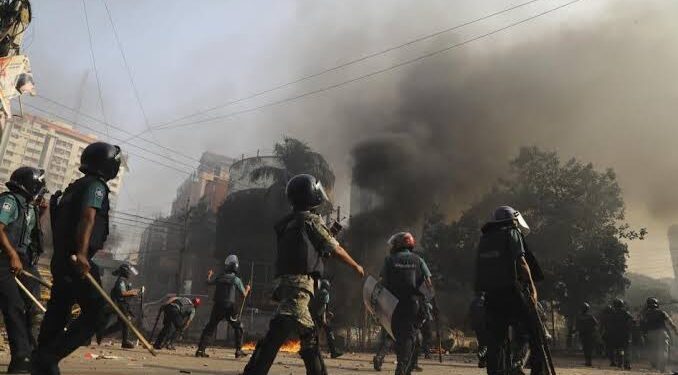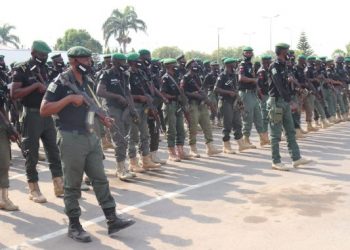At least 90 people were killed on Sunday in Bangladesh as protesters trooped the streets to demand the resignation of Prime Minister Sheikh Hasina from office.
Ms Hasina is the country’s long-serving leader.
The unrest in the country continued as student leaders declared a campaign of civil disobedience to ensure Ms Hasina stepped aside.
Thirteen police officers were also included in the death toll, just as an indefinite nationwide curfew has been declared to curb further violence.
Aside from the death record, hundreds of persons have also been injured in clashes between police and thousands of anti-government protesters in the country.
Also, Internet services have been cut ahead of the long ‘march to Dhaka’ starting from Shaheed Minar, a national monument in the capital.
Broadband Internet has been disconnected nationwide due to an order to shut down mobile Internet service.
Internet service providers say bandwidth supply from submarine and international terrestrial cables has also been cut off.
Broadband service was completely stopped around 10:30 am but had already been slow earlier on Monday morning.
Since Sunday afternoon, 4G mobile internet service has been offline, a source told BBC News.
Facebook and messaging apps, including WhatsApp, have been inaccessible, with junior minister for information and broadcasting Mohammad Ali Arafat saying the services were severed to help prevent violence.
According to Bangladesh’s leading Bengali-language daily newspaper, Prothom Alo, no fewer than 95 people, including at least 14 police officers, have been killed in the violence, while Channel 24 news outlet reported at least 85 deaths.
Citing protesters calling for the prime minister’s resignation, the ruling Awami League party has accused opposition parties, including the Bangladesh Nationalist Party and the now-banned Jamaat-e-Islami party, of hijacking the protest.
Mr Hasina has accused the protesters of “sabotage” and destruction, stating the students are no longer protesters but criminals. As a result of the violence, schools and universities have been forced to close.
Meanwhile, the military has announced an indefinite curfew which began on Sunday evening in the capital, Dhaka, and other divisional and district headquarters, while the government has also announced a holiday from Monday to Wednesday.
The protest, which has been ongoing since July, started with calls to abolish quotes in civil service jobs but has transformed into a much wider anti-government movement.
The United Nations has called for an end to the shocking violence, urging restraint from Bangladeshi politicians and security forces.
Bangladesh army chief Waker-uz-Zami confirmed that soldiers have been deployed across the capital to bolster its security.







